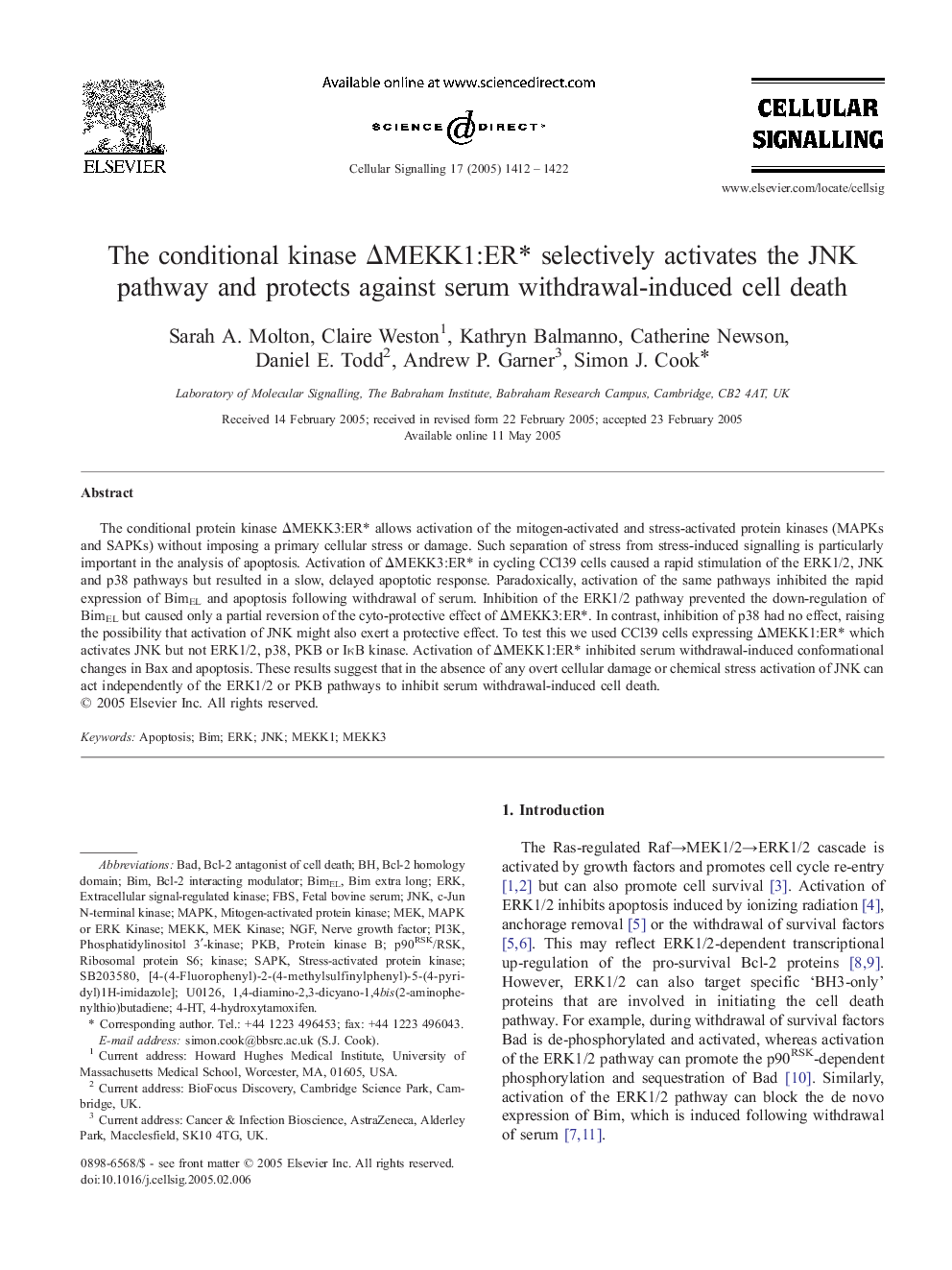| Article ID | Journal | Published Year | Pages | File Type |
|---|---|---|---|---|
| 10816344 | Cellular Signalling | 2005 | 11 Pages |
Abstract
The conditional protein kinase ÎMEKK3:ER* allows activation of the mitogen-activated and stress-activated protein kinases (MAPKs and SAPKs) without imposing a primary cellular stress or damage. Such separation of stress from stress-induced signalling is particularly important in the analysis of apoptosis. Activation of ÎMEKK3:ER* in cycling CCl39 cells caused a rapid stimulation of the ERK1/2, JNK and p38 pathways but resulted in a slow, delayed apoptotic response. Paradoxically, activation of the same pathways inhibited the rapid expression of BimEL and apoptosis following withdrawal of serum. Inhibition of the ERK1/2 pathway prevented the down-regulation of BimEL but caused only a partial reversion of the cyto-protective effect of ÎMEKK3:ER*. In contrast, inhibition of p38 had no effect, raising the possibility that activation of JNK might also exert a protective effect. To test this we used CCl39 cells expressing ÎMEKK1:ER* which activates JNK but not ERK1/2, p38, PKB or IκB kinase. Activation of ÎMEKK1:ER* inhibited serum withdrawal-induced conformational changes in Bax and apoptosis. These results suggest that in the absence of any overt cellular damage or chemical stress activation of JNK can act independently of the ERK1/2 or PKB pathways to inhibit serum withdrawal-induced cell death.
Keywords
4-hydroxytamoxifenMAPK or ERK kinase4-HTMEKKMEKK3Bcl-2 antagonist of cell deathSB203580SAPKMEKK1U0126PKBNGFPI3KJnkERKFBSc-Jun N-terminal kinaseMAPKBADApoptosisBcl-2 homology domainfetal bovine serumnerve growth factorphosphatidylinositol 3′-kinaseMEKMEK kinaseBIMRibosomal protein S6protein kinase Bmitogen-activated protein kinaseStress-activated protein kinaseKinaseextracellular signal-regulated kinase
Related Topics
Life Sciences
Biochemistry, Genetics and Molecular Biology
Biochemistry
Authors
Sarah A. Molton, Claire Weston, Kathryn Balmanno, Catherine Newson, Daniel E. Todd, Andrew P. Garner, Simon J. Cook,
